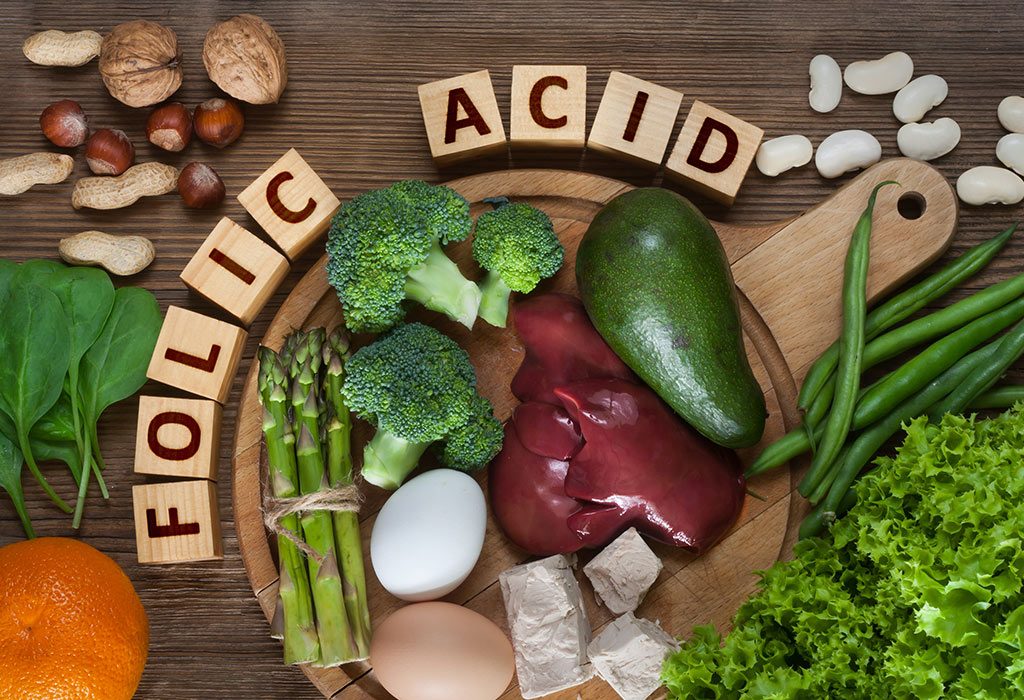What are Vitamins?
Vitamins are necessary organic substances that the body needs in modest amounts to support a number of physiological functions and maintain general health. These essential nutrients are essential for supporting a variety of biological processes, including growth, immunity, and metabolism. While vitamins are required for the body to operate properly, the body is unable to produce enough of them, thus they must be consumed through a healthy diet or supplementation.
What are different types of Vitamins?
Our body’s complex biological systems rely on vitamins for support, and they are essential to preserving our health and wellbeing. These compounds, which are only needed in trace amounts, function as vital cofactors in a variety of enzyme activities, assisting with anything from energy production to immune system function. To develop a well-balanced, nutrient-rich diet that supports maximum health, it is essential to understand the various types of vitamins and how they each contribute differently to our bodies. In this extensive blog , we will look into the complex world of vitamins and look at their classifications, roles, and food sources.
Each type of vitamin has a particular function to ensure our body functions at its peak, from the water-soluble vitamins that require constant replenishment to the fat-soluble vitamins that are stored for later use. In general, there are two classes of Vitamins:
- Water Soluble Vitamins: Water-soluble vitamins comprise of vitamin C and all B-complex vitamins (B1, B2, B3, B5, B6, B7, B9, and B12). These vitamins do not significantly accumulate in the body and, as their name implies, dissolve in water. As a result, they must be constantly consumed to maintain adequate amounts. Water-soluble vitamins are easily absorbed in the small intestine, and excess amounts are eliminated through urine.
/GettyImages-670879517-5b072900a474be0037893f6c.jpg)
- Vitamin C: Ascorbic acid, another name for vitamin C, is a water-soluble vitamin having powerful anti-inflammatory qualities. It is essential for immune system support, encouraging collagen creation for good skin, and boosting wound healing. Additionally, vitamin C is crucial for people who follow a vegetarian or vegan diet because it improves the absorption of iron from plant-based diet.
- Vitamin B1: Thiamin, often known as vitamin B1, is a water-soluble vitamin that plays a role in the conversion of carbohydrates into energy. It is necessary for the nervous system to operate efficiently and for muscles to contract.
- Vitamin B2: Riboflavin, often known as Vitamin B2, promotes the metabolism of fats, proteins, and carbs to enable energy conversion. It also contributes to healthy skin and eyes.
- Vitamin B3: Niacin, often known as vitamin B3, is essential for metabolising food into energy as well as sustaining the neurological system. Additionally, it promotes healthy cholesterol levels and helps in maintenance of good skin.
- Vitamin B5: Vitamin B5, or pantothenic acid, is involved in energy metabolism and the synthesis of essential compounds like fatty acids and cholesterol.
- Vitamin B6: Vitamin B6, also known as pyridoxine, the most important vitamin is crucial for approximately 100 enzyme processes involved in protein metabolism, red blood cell production, and nervous system activity. Additionally, it also contributes to the development of neurotransmitters, promoting emotional well-being.

- Vitamin B7: Vitamin B7 or Biotin is also referred as “The Beauty Vitamin”, which has been linked to preserve beautiful skin, hair, and nails. Additionally, it contributes to the metabolism of amino acids, lipids, and carbs.
- Vitamin B9: Vitamin B9, also known as folate (when found organically in foods) or folic acid (when absorbed through supplements and enriched meals), is essential for DNA synthesis, cell division, and foetal development during pregnancy. To avoid neural tube abnormalities in the unborn child, it is especially critical for pregnant women to guarantee appropriate folate consumption.

- Vitamin B12: Vitamin B12 is extremely essential for the development of red blood cells, DNA synthesis, and nervous system development. It stands out from other vitamins in that it needs the stomach enzyme intrinsically to be absorbed.
- Fat Soluble Vitamins: Vitamins A, D, E, and K are examples of fat-soluble vitamins. Unlike water-soluble vitamins, they are absorbed alongside fats in the small intestine and stored in the body’s fatty tissues and liver. An excessive amount of fat-soluble vitamins might be hazardous since they are stored. These vitamins are crucial for sustaining vision (Vitamin A), bone health (Vitamin D), antioxidant activity (Vitamin E), and healthy blood coagulation (Vitamin K).

- Vitamin A: Vitamin A is necessary for good eyesight, especially during dark conditions. Additionally, it also affects immunological performance, cell differentiation, and the maintenance of healthy mucus membranes.

- Vitamin D: Unlike other fat-soluble vitamins, vitamin D can be produced by the skin when exposed to direct sunlight. It is necessary for the absorption of calcium and phosphorus, which promotes healthy bones and teeth. Additionally, vitamin D also affects immunity and general health.
- Vitamin E: Vitamin E protects the human body against free radical damage to cells. It also helps in immunological support and contribute to a healthy skin.

- Vitamin K: Vitamin K is essential for the coagulation of blood, which reduces blood loss. Additionally, it helps maintain the health of bones and may regulate the body’s calcium levels.
What are the food sources of Vitamins?
| Vitamins | Food Sources |
| Vitamin C | Citrus Fruits, Broccoli, Bell peppers etc. |
| Vitamin B1 | Whole grains, Legumes, nuts, pork etc. |
| Vitamin B2 | Dairy products, leafy green vegetables, meat |
| Vitamin B3 | Meat, Fish, nuts, legumes |
| Vitamin B5 | Meat, Dairy products, avocados, grains |
| Vitamin B6 | Meat, fish, nuts, seeds, bananas, spinach |
| Vitamin B7 | Egg yolks, nuts, seeds, liver, and vegetables |
| Vitamin B9 | Leafy vegetables, legumes, citrus fruits |
| Vitamin B12 | Meat, fish, dairy products, and folate rich meals |
| Vitamin A | Carrots, sweet potato, spinach, liver, fish |
| Vitamin D | Fatty fish, egg yolks, sunlight |
| Vitamin E | Nuts, seeds , vegetable oils and leafy vegetables |
| Vitamin K | Leafy vegetables, Olive oil and sunflower oil |
Why are Vitamins so important to human body?
Our human body depends heavily on vitamins to sustain a variety of physiological processes that are essential for good health and wellbeing. Each vitamin has a unique function and cooperates with other compounds and enzymes to promote different biochemical processes. Here is how vitamins work in the human body:
- Immune Function: Fat soluble Vitamins A, C, D, E, and some B-complex vitamins are required for a healthy immune system. They contribute to the production and activation of immune cells known as white blood cells that fight off diseases and infections. Consuming foods high in these vitamins, such as fortified foods, fruits, vegetables, nuts, etc. boosts immune system function and general well-being. Getting a good mix of these vitamins help our bodies stay healthy and durable.

- Energy production: Numerous B-complex vitamins, including Vitamin B1 (thiamine), Vitamin B2 (riboflavin), Vitamin B3 (niacin), Vitamin B5 (pantothenic acid), and Vitamin B6 (pyridoxine) are necessary for converting the carbs, lipids, and proteins from our meals into energy. These macronutrients serve as coenzymes, assisting enzymes in the metabolic reactions that generate energy from them.
- Bone health: For the maintenance of strong, healthy bones, vitamins D and K are crucial. They complement one another. Calcium is essential for the production of bones, and vitamin D helps the body absorb calcium from the intestines. On the other hand, vitamin K is essential for bone mineralization as it makes sure calcium is properly absorbed and deposited in the bones, increasing their density and decreasing their susceptibility to fracture. For strong bones throughout life, it’s important to maintain appropriate levels of these vitamins through a balanced diet and sunlight exposure (for the production of vitamin D).
- Supports Central Nervous System (CNS): The normal functioning of the neurological system depends on the vitamins thiamin (vitamin B1), pyridoxine (vitamin B6), and cobalamin (vitamin B12). Vitamin B1 aids in the conversion glucose into energy, which is essential for the functioning of the brain and the transmission between nerve cells. Vitamin B6 helps regulate mood and cognitive function through the production of neurotransmitters like serotonin and dopamine. Cobalamin contributes to the preservation of the myelin sheath that surrounds neurons and ensures effective nerve signal transmission. By consuming these B vitamins, one can promote a healthy neurological system.

- DNA & Cell growth: Vitamin B9 and B12 are essential for DNA synthesis and cell division. Folate is necessary for cells that divide quickly, such as those in the growing foetus during pregnancy. It promotes healthy neural network development and lowers the chance of birth abnormalities. Together with folate, cobalamin promotes the synthesis of RBC (Red Blood Cells) and the growth and repair of body tissues. These B vitamins are essential for preserving cell structure and promoting healthy growth and development throughout life.

- Contributes to healthy skin, hair & nails: The “beauty vitamin,” often known as biotin (Vitamin B7), is essential for maintaining healthy nails, hair, and skin. The protein keratin, which forms the foundation of hair, skin, and nails, is produced with the help of biotin, which improves the strength and appearance of these tissues. It supports healthy, luscious hair while promoting hair growth to prevent hair loss and also treat brittle nails. For the skin to be youthful-looking and for the hair and nails to be strong and robust, adequate biotin consumption is necessary.
Every vitamin, however, plays an individual and essential role in the complex system that makes up the healthy human body. To guarantee a sufficient intake of vitamins, support the normal functioning of body functions, and general well-being, it is important to have a balanced diet that contains a broad range of nutrient-rich foods.
What format should you choose? Tablets or Capsules
Choosing a suitable supplement form—whether it be tablets or capsules—affects ease of intake, digestion, and overall satisfaction. People may choose wisely depending on their own dietary needs, tastes, and medical situations by being aware of the benefits and factors of each dosage form.
- Tablets:
- Cost- effective: Manufacturing tablets is typically less expensive than manufacturing capsules. Their excipient availability and straightforward manufacturing technique help to make them affordable. Tablets are a popular choice because of this cost benefit, which often ends up in cheaper pharmaceutical costs for consumers.
- Prolonged shelf life: Compared to other dosage forms, tablets are praised for their stability and prolonged shelf life. Tablets that are maintained properly keep their shape and effectiveness for a long time, lowering the possibility of pharmaceutical waste.
- Divisibility: Tablets have the ability to be readily cut into half or quarters without losing any of their structure or efficacy. This quality is especially helpful for changing dosages for paediatric or elderly patients or fine-tuning dosages to match specific patient demands.
- Capsules:
- Faster Absorption: Compared to other dose forms like tablets, capsules usually dissolve rapidly in the digestive tract. This speedier breakdown allows for faster drug absorption, which results in faster therapeutic effects.
- Flexible Formulations: Capsules can accommodate a wide range of ingredients, including powders, granules, pellets, and liquid or semi-solid formulations. This adaptability enables the consumption of a diverse spectrum of medications in various formats.
- Tasteless and Odourless: Capsules are often tasteless and odourless, making them easier to take, particularly for people who have difficulty swallowing tablets or other oral treatments with strong tastes or odours. However, there are coated tablets which can make your consumption experience better compared to traditional tablets.
Points to consider:
Medical Considerations: For those who have specific medical concerns, such as gastrointestinal disorders, capsules may be a more gentle and harmless solution for their stomach than tablets. For some who might find tablets uncomfortable to swallow, the smooth, gelatinous covering of capsules makes swallowing simpler.
Vegan Preferences: Compared to tablets, which sometimes include gelatin coverings, capsules provide a larger variety of dietary alternatives, including vegetarian and vegan options, making them acceptable for people with dietary restrictions or allergies to gelatin. By choosing capsules, you can be sure that your supplement usage fits your dietary needs.
Professional Advice: It is important to take the advice of healthcare professionals into account when choosing between tablets and capsules, particularly when using supplements alongside with prescription or OTC (Over the Counter) medications. Some supplements or medications may need some unique formulations. Healthcare professionals can provide insightful advice on the best option based on your specific needs and health concerns.
However, your own tastes and dietary requirements will ultimately determine whether you choose a tablet or a capsule. For instance, some people could choose tablets for their potency, while others would prefer capsules due to their faster rate of absorption. This choice can be influenced by any medical requirements or recommendations, both of which are proportionate. However, you must ensure that the dose type you select will benefit you in terms of your own health objectives or when combined with any medicine.
Glentworth Formulations is here to suit your every need. Everything from Tablet, Capsule and Powder blends.
If you are wanting to know more information, please get in contact with us. Either using the contact form or contacting us directly on: [email protected].


